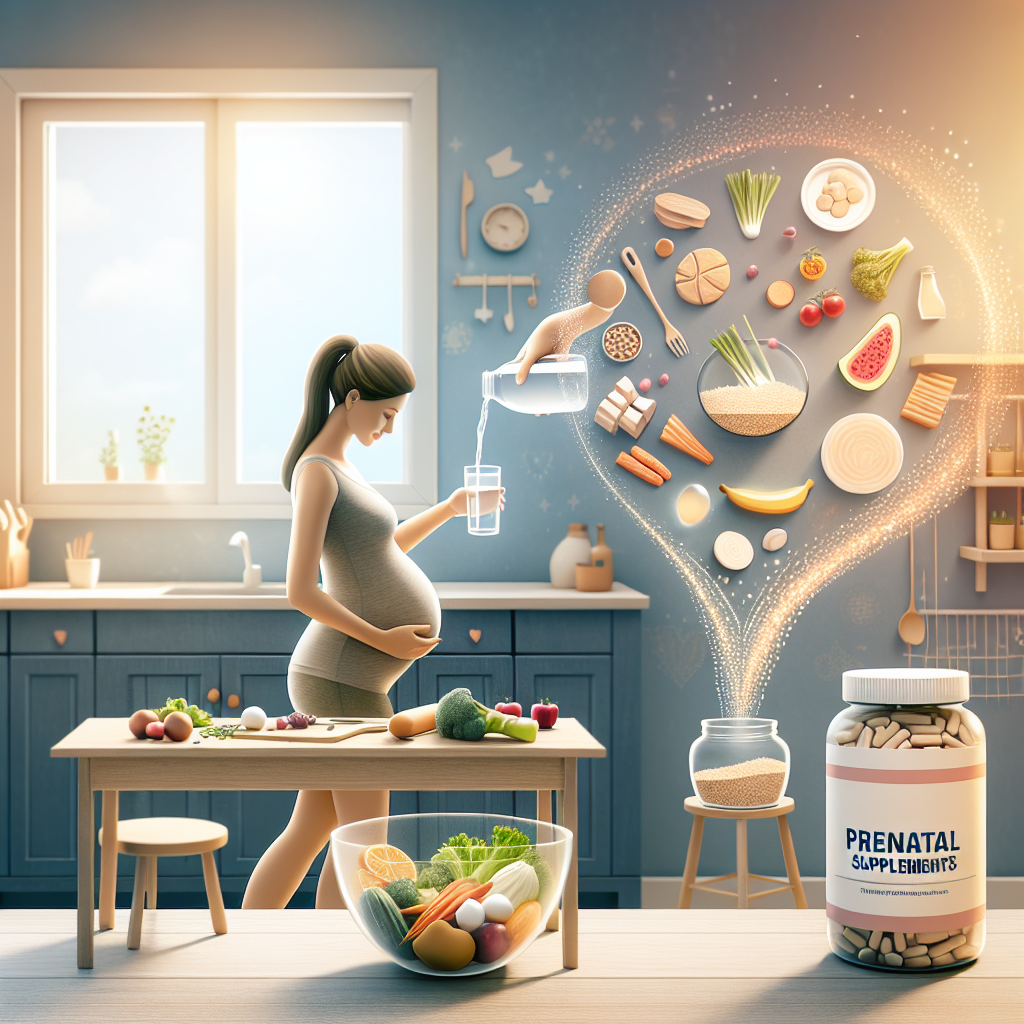Healthy Eating During Pregnancy: Tips and Recommendations
Introduction
Expecting a child is one of the most beautiful but also challenging moments in a woman's life. In addition to the immense joy and curiosity related to the birth of the little one, there are also many questions related to how a future mother should feed herself. Healthy eating during pregnancy not only supports the healthy development of the baby, but also helps in better management of pregnancy symptoms and a faster postnatal recovery.
The Importance of Healthy Eating During Pregnancy
How important is nutrition for your and your child's health? Very! Studies show that adequate nutrition during pregnancy can reduce the risks of chronic conditions, improve pregnancy progress and positively influence the child's cognitive development.
Essential Food Groups
A balanced diet during pregnancy should include a variety of foods from all the major food groups: fruits and vegetables, protein, whole grains, dairy products, and healthy fats.
Fruits and vegetables They are a rich source of essential vitamins, minerals and fibre. It is recommended to eat at least five servings a day, in different colors and types, to ensure that you get a wide spectrum of nutrients.
PROTEIN Proteins help the child's muscle and tissue development. Good sources of protein include lean meats, chicken, fish (with caution on the amount of mercury), legumes and nuts.
Whole grains An excellent source of energy and fiber, whole grains such as oats, quinoa and wholemeal bread should be part of your regular diet.
Dairy products They are important for the intake of calcium and vitamin D, essential for the bone development of the baby.
Healthy fats Fats are necessary for the development of the child's brain. Include olive oil, avocado and fatty fish in your diet.
Foods to Avoid
It is important to note that there are also foods that should be avoided during pregnancy, such as raw meat, fish with high levels of mercury, unpasteurized products or products with excessive caffeine.
Meal Planning and Healthy Snacking
Planning your meals can seem like a chore, but it's an essential step in making sure you're getting all the nutrients you need. A good idea is to prepare healthy snacks to keep on hand, such as dried fruit, Greek yogurt or a whole grain bar.
Recommended Supplements
Despite a balanced diet, you may still need supplements. Folic acid, iron and omega-3 are often recommended during pregnancy. However, this should be done on the recommendation of your doctor.
Lifestyle and Food
The literature is clear that the mother's lifestyle, including diet, can have long-lasting effects on the child's health. Avoid alcohol, smoking and excessive stress and focus on getting quality sleep and maintaining an optimal level of physical activity.
Hydration
Hydration plays a crucial role during pregnancy. Water helps transport nutrients into cells and remove waste and toxins from the body. At least 8-10 glasses of water per day is recommended.
Pay attention to the weight
It is normal to gain weight during pregnancy. However, it is important to stay within a healthy range, as too much weight can lead to complications for both you and your baby. Talk to your doctor about how much weight you should gain.
Conclusion
Healthy eating during pregnancy is essential for you and your baby's development. By following a balanced diet, avoiding unhealthy foods and leading an active and balanced lifestyle, you will increase your chances of having a smooth pregnancy and a healthy baby. It's important to remember that every body is different, so check with your doctor for personalized recommendations. Now that you have this information, you're one step closer to living the healthiest and most fulfilling time of your pregnancy. And don't forget, for more useful tips and advice on how to navigate this wonderful chapter of life, subscribe to our newsletter or visit our special section for mothers.














































































































































